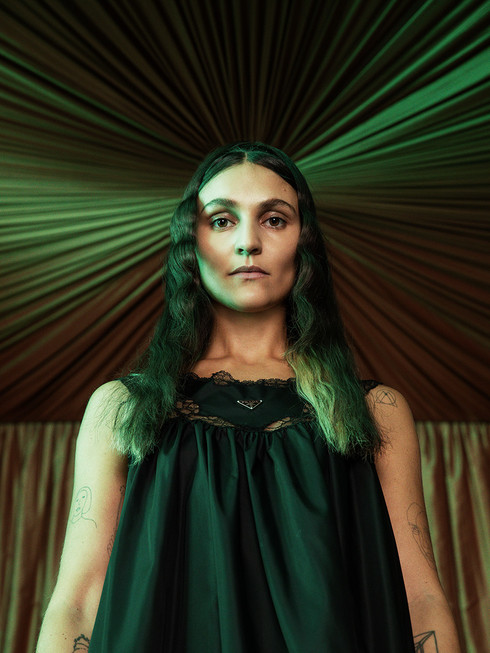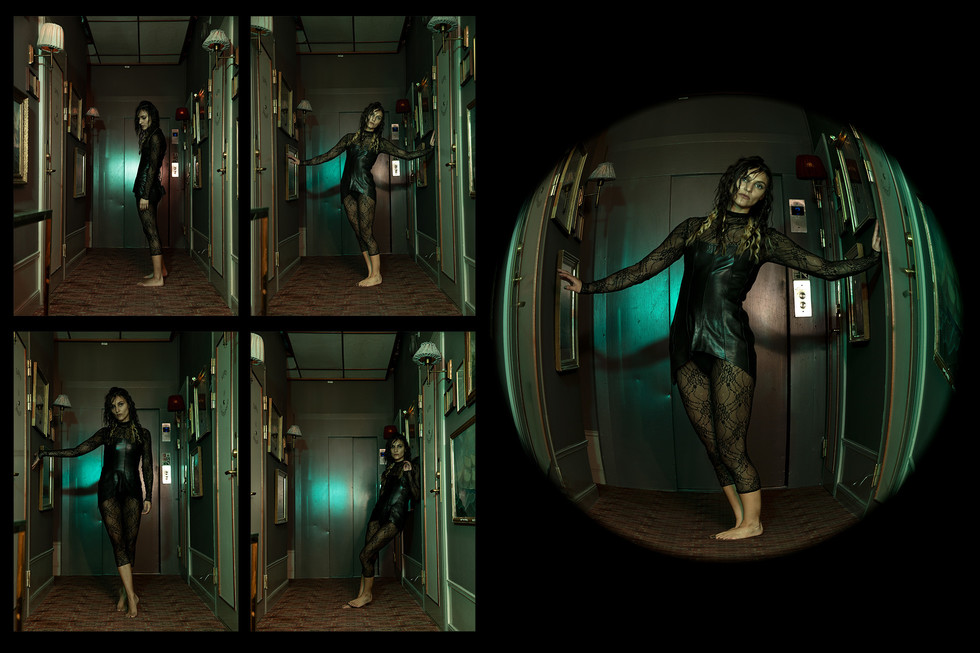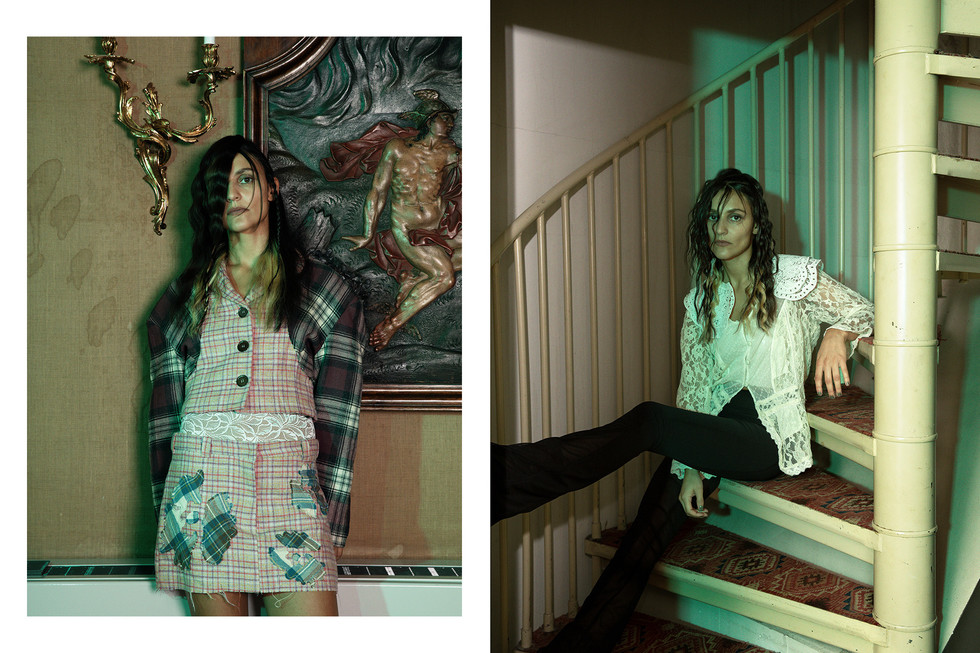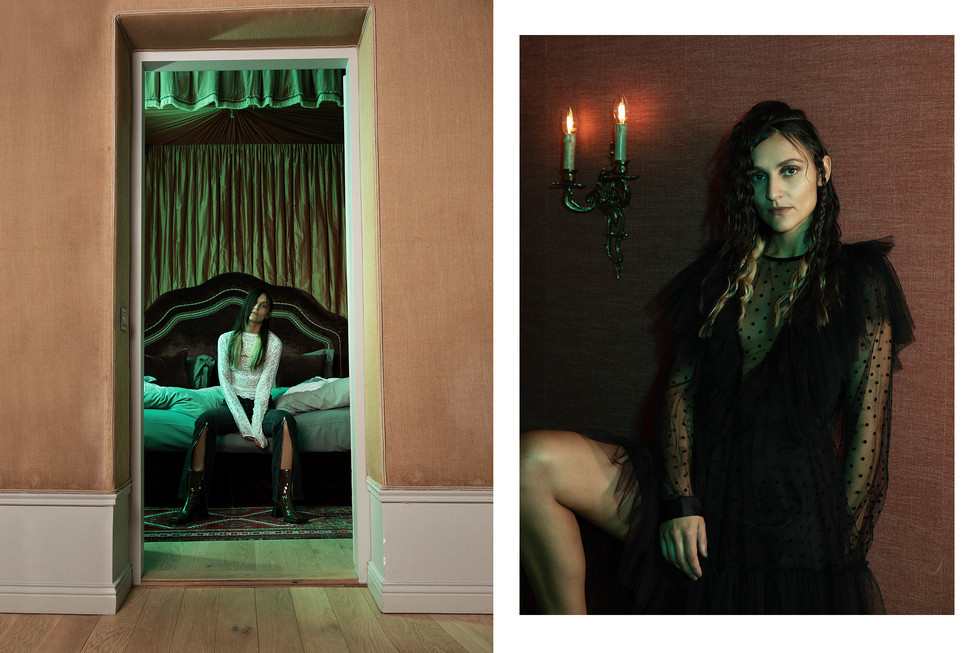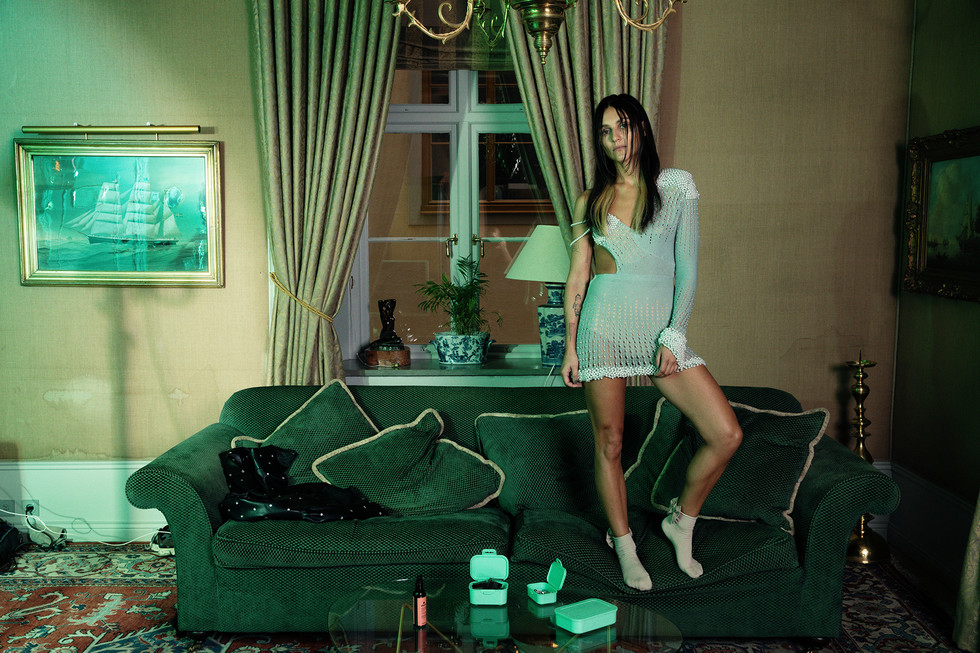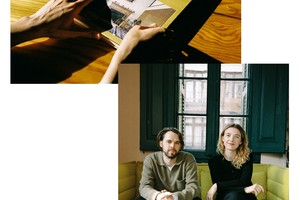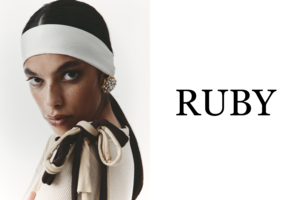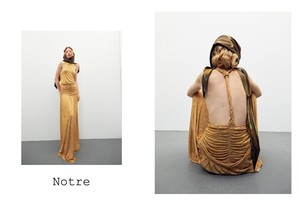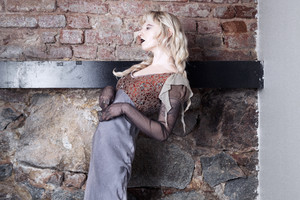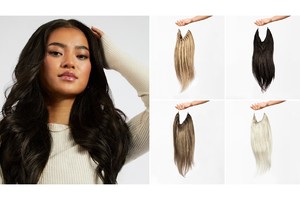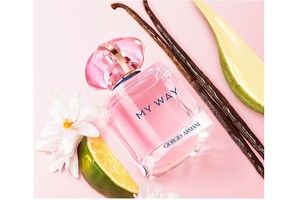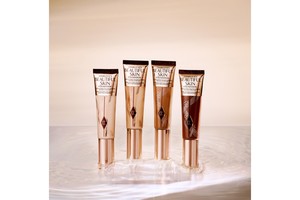Nicole Sabouné on Music, Liberation and Kismet
Written by Natalia Muntean by Sandra MyhrbergHow does music and neuroscience coexist within the same person? “The passion to do both things comes from the same drive and the same kind of place,” says Nicole Sabouné, one of the most interesting voices on the Swedish music scene, adding that she will probably live for the rest of her life balancing these two paths. After having recently graduated with a master’s degree in neuroscience, the 32-year-old artist released her fourth album titled Kismet at the beginning of October.
“I always get into this fragile state, when opening up and releasing new music, of course. But it is also a relief, because it’s not mine anymore. And that is liberating,“ she tells me days ahead of the release. Kismet has been in the works for more than a year and a half, working in the lab during the day and spending her evenings in the studio. “I had a couple of hours every evening to get things done. So it’s been both good and bad. I think you get very effective and you don’t go back and forth a hundred times until you don’t know what’s good anymore,” she continues. Influenced by artists such as PJ Harvey, Air or Joy Division, Sabouné dug into herself and her own experiences for Kismet, a record that explores love, fate, liberation and acceptance. “Music has always been my output, especially when I feel something strongly and cannot express it in a good way.”
Natalia Muntean: I can imagine you get very surprised reactions from people when you tell them about your two career choices, but when did you know you wanted to become an artist? Or would you define yourself as an artist?
Nicole Sabouné: Yes, I would define myself as an artist. And it has been there since I was a kid. I don't remember not thinking that I would like to pursue some kind of career in music. From the start, it was only about getting some kind of output because I was quiet. So I found music to be it for me, which was really important. I think that has been there with me as a tool to be a part of something bigger.
NM: When you were little do you remember listening to music and singing? Or were you writing? Were you composing?
NS: I did everything. And my interest or passion comes from what happened to me when I listened to music when I was a kid. And I still have that - there's nothing that I can compare with that feeling of really listening to music that you enjoy, and that you feel, “Oh, this is my space”. And then I have been singing since I was… well, always.
NM: Do you have any memory of a song? Like maybe, your first ever memory of a song that you were listening to?
NS: Oh, I think there was a mix between like Spice Girls, Radiohead and Nirvana.
NM: A pretty wide range for a five year old!
NS: I think it's my brother's fault, to be honest (laughs). And then I went into Swedish punk, so I just came in contact with the punk scene. And then I started to move over to everything that came from the UK. And then it was just like spinning. I went into post punk and I’ve been there since.
NM: You explored different genres…
NS: I think I did. But I always kept in the darker space. When it comes to music, it has to have some kind of melancholic vibe in it for me to be interested. Otherwise, it passes through me. With some kind of music, I can tell that it might be good, but something has to happen; it has to grab something in me, and I think it's the dark vibes that work for me.
NM: I wanted to touch upon this, actually, because I saw your music being described as “between darkness and romance”. And I'm just curious, how do you resonate with this, you know, description, and why do you think it encapsulates the essence of your music?
NS: Of course it has something to do with references, the music world I come from, and what I like. Producing my own music is about wanting songs to evoke that specific feeling. With my voice as the main instrument, I always start by considering how I want to sing the song, how it suits my voice, and how I want it to appear. But it's a nice description, though, to be romantic and dark.
NM: Why did you name the album Kismet and how was the process of working on it?
NS: So kismet comes from the word fate or destiny, it has an Arabic origin and I'm half Lebanese, so I wanted a word that felt substantial, almost like a movie title because the album was inspired by Sofia Coppola. And then I saw this interview with Michael Stipe from REM, and he mentioned it was kismet that all of them in the band met. I had heard it before as qisma from Arabic, but didn’t realise you can say kismet in English. And then, when I started writing the songs, I felt like it suited really well into the concept of what I wanted to write about. Working with two of my best friends, Billy Cervin and Jon Bordon, with Billy and I co-writing a couple of songs and all three of us producing the album, has been the main experience of creating this album. It was a close collaboration, a dream team, everyone open-minded with good taste in music. We built this universe together, referencing songs I had in mind. I wrote some songs myself, picked up others from the past that I co-wrote with a friend and finished them, and the producing part of the album has been the most important, to be honest. Having the word kismet to be the title for this experience felt right.
NM: Like tying everything together.
NS: Yes, and making it sound like you want it to sound because, of course, you can have this song that you wrote and you love, but it takes a bit to make it sound like you want it to sound. So the producing part has connected everything together.
NM: And then you mentioned that when you stumbled upon this word, you realised that it will fit very well with what you wanted to say on the album, what do you want to say on or with the album?
NS: As a scientist, I have this really ambivalent relationship to fate. And I don't think I believe in fate in that kind of sense that most people do. When you talk about destiny, as in it was destiny that we met, and now we will share our lives together. This puts a lot of pressure on everything. So I thought this word is so huge, and it puts a lot of tension into things. And at the same time it’s such a beautiful phenomenon, that can be really relieving, and liberating. I wanted it to be a record about love, in relation to some kind of fate. So it has this red thread through the album, where it starts by really wanting someone and then it goes into all of the feelings of doubting yourself in the beginning and then you're not sure if you're capable of loving or being loved and, and then you just go through all the other relationships you had before… And then you have this fragmentation of love throughout the record. So it goes into not realising that it might not be fate that we met, that the relationship is not what we thought it was, or you are not the one that I thought you were. And then it goes into some kind of journey of liberating yourself from this. It ends in some kind of feeling of missing the other person so much, of loving the other person so much but you know it's coming to an end.
NM: But, so correct me if I understood wrong, but it's basically about like, you have this idea that destiny can solve everything kind of, or it has everything set and you can’t decide anything. And then you realise that you can actually decide things and destiny…
NS: Yes, that's a good interpretation. Because I think that finding your destiny can also be about the relationship to your own life or yourself. It's up to people to decide. But it's more or less about trying to understand that destiny might not be only one thing, that you can also… not control it yourself because that's not what it is, but more or less just be open to maybe other kinds of destinies, I guess. Because you can also switch it, right? You can say that it was destiny that you met someone. But when it doesn't work, that might be destiny as well, which is kind of weird.
NM: And were there specific emotions, experiences or sources of inspiration that fueled the creative process?
NS: Everything in my life fits into this record, the good and the bad. I haven't been doing that a lot in my lyrics so this is one of the first times that I've said to myself, “Okay, this happened to me, and I'm writing it down, and letting everyone listen to it.” And I thought about how I can talk about this in a way where I don’t hit my integrity too much, because I'm a very private person otherwise, and I never like to talk about my private life. But still I cannot hide from some of these lyrics being really self-experienced.
NM: What prompted this decision to be more vulnerable?
NS: Maturity, maybe. Feeling that you are more in control of yourself, letting yourself do things that are quite scary, but can be good for you in the end.
NM: You mentioned situations that inspired you and that you put into words. I was wondering how you view the fact that as an artist, you can take a story that I assume happened with someone else and create art out of it?
NS: I think I agree that you're allowed to have your own truth. And that's what art is about. I don't think there should be any boundaries to that, except not being a shady person. But more or less, art has to be some kind of liberation. I think it would be boring if you always took someone else's feelings into consideration when you're trying to be true to yourself or challenging yourself. I wouldn't call out someone's name but I think it would be boring if people started to think too much about what they're writing. I want it to feel raw and honest and authentic.
NM: This period after releasing the album might leave you exposed in some way. How are you coping with it?
NS: Leaving town, hiding somewhere (laughs). I have thought about it and I think I just need to face it, to be honest. This is my record and I'm very proud of it. I just need to teach myself to own it in a way that I haven't done before and also that it is okay to change and feel vulnerable and try to learn how to manage those feelings.
NM: Why do you think that is?
NS: Oh, God, where do I start? As a kid, I was quite isolated and didn't have many friends. I haven't practised talking about feelings much during my childhood. In my preteens and late teens, I struggled with social awkwardness, trying to understand how people connected. Getting into adulthood, fitting into the world, and navigating social norms have been ongoing challenges. I'm still practising all the social codes. I don't like the feeling of people getting too close; it's like, “Don't come any closer because I don't know how to handle it.” But every five years or so, someone comes into my life, like this amazing friend I met two years ago. Once I open up, good things happen, but I can still be reserved and selective.
NM: That is very interesting because you are an artist, you are in the public eye, this comes with the job. But then you say you don't like doing that. So how do you do it?
NS: It's a balance. And it's also a day to day thing. Some days, I don't want to talk to anyone. And some days, I feel brave enough to make it out in the world. And I think music makes me brave because there’s this thing to talk about and it’s easier if you have something to bring to the table, like a record, if we just talk about the industry. And other than that, I went to school for six years after releasing two albums. I had to move away from the public eye and I needed to ground myself into something else.
NM: But going back to the album, you have a mix of genres in it. From what I heard, and I read it's like from Gothic elements to Nordic pop. How did you blend them all together so it's a melodically cohesive line?
NS: It's always hard to talk about genres when it comes to music because people talk about my music as like, “Oh, she's the goth Princess of Sweden”. And then some people say I’m indie pop and indie rock and rock and post punk. But I don't think like that, to be honest. I never plan for a specific genre, I’m more or less just sticking to the song and the story of the song and just trying to figure out how to create a concept around the songs that I picked to be on the album. And there are some elements that we use for every song just to connect them. “I got it all” is the main pop song of the album, if we're talking about genres, and that was Björn Yttling’s input. But the songs I wrote myself have more or less the same melodic line because they come only from me. I think it's also interesting to collaborate with people, to get other input, to open it up a little bit.
NM: Can you tell me more about Sofia Coppola and how does she fit into this?
NS: She fits right into it. I mean, she's been around since I was a teen and I've always loved her movies. I think she's been a part of forming my musical preferences because she has this great taste in music and she shows that with her soundtracks. And I found a lot of bands through watching her films, which was really nice. For this album, the main reference has been Air, the French band who did the soundtrack to Virgin Suicides. I really love her aesthetics and connection to the 90s. And I just think she's a brilliant director, to be honest.
NM: And you mentioned that you would like the album to sound like a soundtrack to one of her movies. What would the movie be about?
NS: It would be about love in some kind of way. I guess it would be a story about two people trying to figure life out.
NM: How do you balance your identity as the artist and Nicole, the private person, and how do they intertwine?
NS: I feel more comfortable as the artist. I feel more myself and connected to what I do. I have confidence and trust myself a lot as an artist and what I want to do and how I want to communicate things. As a private person, I've been better in the last five or 10 years, surrounding myself with people I really trust. It was a long road of being selective, and I found my people. I feel more and more like myself as a private person as well, but I don’t trust myself as much in the private concept of myself.
NM: How has your music evolved since you first started singing and what has changed and what has remained constant?
NS: I think the focus on my voice as a main instrument has been constant throughout my career. It's a part of my music and how I get identified with my fans. Starting out as a 20-year-old, it's been a journey, like any other job. I've improved over time, especially in songwriting. Initially, I had insecurities about writing melodies and composing because I wasn't sure how it would sound if I did it myself, given my early collaborations. That has developed a lot. Now, I can write something that feels like a song I genuinely created. The same goes for lyrics. I can capture a greater sense of what I want to express rather than just focusing on what sounds good. It's a journey, mastering every process in the whole thing.
NM: It sounds like you've had a long journey and now you’re ready to fly! Can you share any specific experiences or influences that have shaped your musical style and artistic expression?
NS: Oh God. I've watched a lot of movies. Honestly, many of my music references come from movies, especially in terms of style, from Chloe Sevigny to Harmony Korine. In my teens I also read a lot about punk history. And of course, I listened to musicians such as Patti Smith, Nick Cave, and PJ Harvey. So listening to a lot of music and watching great movies really shaped my taste. And concerts!
NM: What was the first concert you went to? Do you remember?
NS: My mom was born really close to where the Sweden Rock Festival is. So I was there from when I was a kid, like 12. I was raised at the Sweden Rock Festival. So, I went to a lot of concerts when I was a kid because my parents went to many, thanks to the festivals and all. So probably a metal or rock concert.
NM: What was the best moment of your career so far?
NS: Lots of great moments, to be honest. I met Patti Smith once, and I almost died. I was like, 23 or something, and I had this idea of becoming Patti Smith one day. So that was insane! But also, I think the small moments, like being on tour with my band, have been the greatest moments of my life. I love to rehearse and get the band together and enjoy the music. Those are the best moments.
NM: So it's the little things, except for Patti Smith.
NS: The little things and yeah, a little bit of Patti. (laughs)
NM: What is your favourite track on Kismet?
NS: “Before You Know It” because it has this intense and really raw output that I really like, and it's going to be amazing live. I have a lot of love for that song at the moment.
NM: What lyrics from the album have a special meaning to you?
NS: All of them, to be honest, but I think the most sensitive spot is “Stop Loving Me” because that's actually taken from just one situation. That was really intense and I'm proud that I could put the experience into words in an elegant way.
NM: What emotions or responses do you hope to evoke in your audience?
NS: I think some kind of liberation. I always go for that. I want people to feel like they are allowed to feel everything, and that they take themselves seriously, finding their own way of interpreting things. Just feel good about it, and as music has this really intense power, lose yourself in that, I guess.

